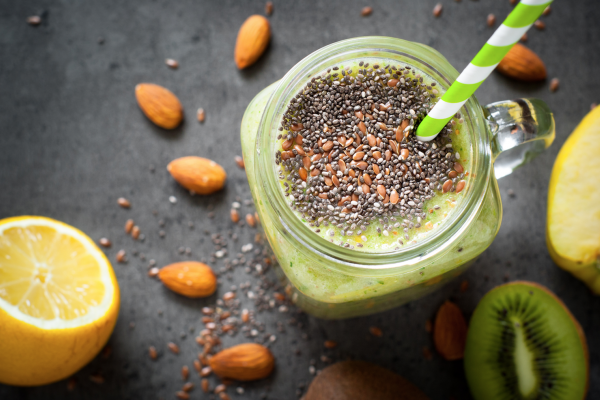Whether you’re lactose-intolerant, vegan or just looking to switch up your milk routine, milk alternatives can offer good nutrition profiles and different flavors to keep things interesting. The grocery store shelves can get a little overwhelming with all the different choices. So how do you choose the right milk replacement for you? Check out the nutrition facts about these six common milk alternatives.
Soy Milk
Soy milk has been the most popular non-dairy substitute for decades because its nutrition profile closely resembles that of cow’s milk. It's the best high-protein milk alternative. Soy milk offers about 7 grams of protein per cup, compared to cow milk's 8 grams per cup. Most, but not all, brands are fortified with calcium and vitamin D, so be sure to look at the nutrition label to find these nutrient values. Soy milk comes in flavored varieties, such as vanilla, and also comes in lighter and lower-calorie versions.
Almond Milk
Almond milk is a great dairy alternative when you are looking to cut calories. This nut milk is made from water and ground almonds. The bad news about almond milk is that it contains very little protein—just 1 gram per cup! Although most varieties of almond milk are fortified with vitamins and other nutrients, there are others that don’t contain vitamin D or calcium. Almond milk is creamier and thicker than other alternatives since its calories are coming from healthy, unsaturated fats.
Never miss another Cancer Talk blog!
Sign up to receive our monthly Cancer Talk e-newsletter.
Sign up!Rice Milk
Rice milk is a good option when you want something with a neutral flavor and a less creamy texture. When fortified, it usually does contain the same amount of calcium and vitamin D as cow’s milk. This milk substitute also lacks protein, containing only 1 gram per cup.
Coconut Milk
This is one of the newest non dairy milks out there. Coconut milk is a good choice when you want something creamy and sweet. Though this milk offers 30 percent of your daily value (DV) of vitamin D and 50 percent of your DV of vitamin B-12, it contains little calcium and just 1 gram of protein per cup. If you’re looking to reduce your saturated fat intake, keep in mind that coconut milk is the only milk alternative that contains as much saturated fat as whole cow’s milk.
Hemp Milk
Hemp milk is made from water and shelled hemp seeds. It contains a slew of healthy nutrients, including calcium, vitamin D and a moderate amount of protein (about 3 grams of protein per cup). As an added bonus, it contains omega-3 fatty acids. Unfortunately, hemp milk may be a difficult taste for some people to get used to.
Cashew Milk
This is another one of the newest dairy alternatives. Cashew milk is made from blending cashews with water, resulting in a creamy liquid. This milk is often fortified with calcium and vitamins A, D and B-12. Different brands will have varying amounts of nutrients, so be sure to look at the nutrition label. Although this milk alternative may be low in calories, it also contains very little protein, just 1 gram per cup.


